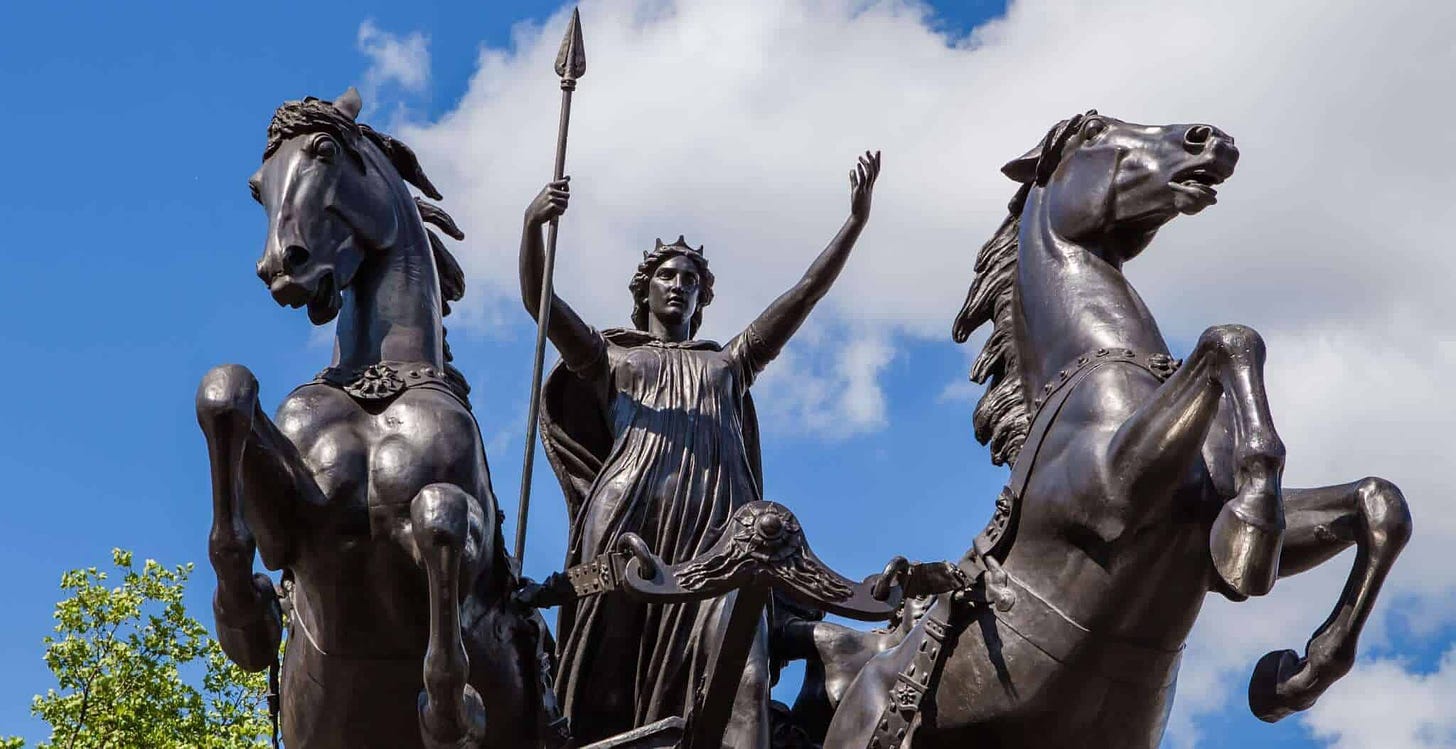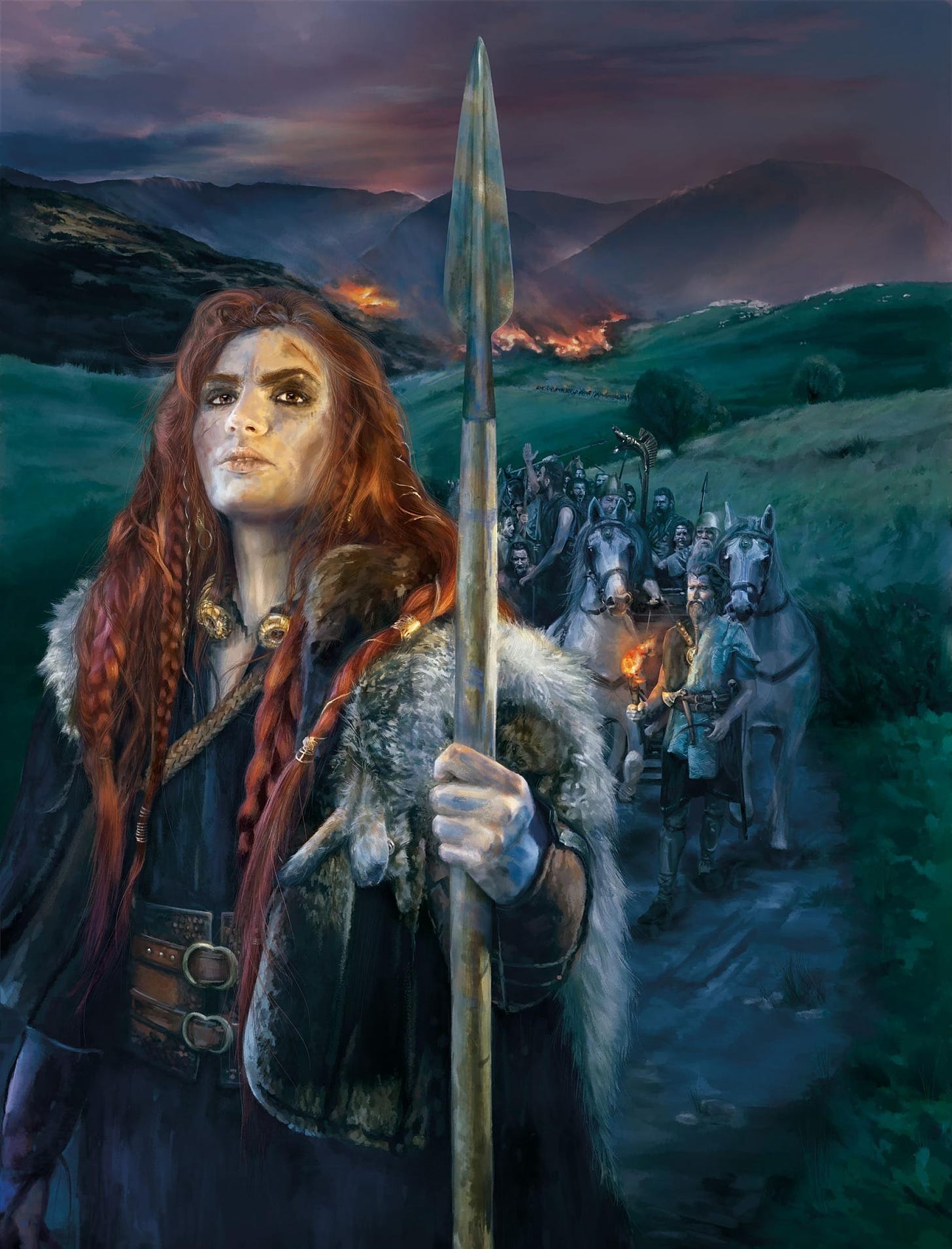Boudica: Troublesome: The Woman That Beheaded Enemies, Burnt Down London, and Drank Poison
Britain has created many dangerous warriors across the ages who fought to keep Britain safe, but there is a formidable woman whose name will never be forgotten — Queen Boudica or Boadicea (as she is more commonly known).
Queen Boudica was a British queen of the Iceni Tribe during the golden age of the Roman Empire in 60 CE alongside her husband King Prasutagus. She was a striking woman: She was tall, had fierce eyes, and a harsh voice. She had long red hair that fell to her hips. Like other ancient Celtic women, Boudica had trained as a warrior, including fighting techniques and the use of weapons.
Problems started when Prasutagus made the Roman Emperor, Nero co-heir with his daughters to his wealth and kingdom. He hoped this ploy would not only win him the favors of the Romans but also protect his kingdom and household from attack. However, after the death of Prasutagus, this agreement fell apart.
The Roman Governor of Britain at that time, Suetonius Paulinus, had other plans for the land. When Prasutagus died without a male heir in A.D. 60, the Romans annexed his kingdom and confiscated his family’s land and property. Roman soldiers and their slaves plundered the household. Boudica was flogged and her daughters were raped by Romans slaves. Other Iceni chiefs suffered in a similar manner and their families were treated like slaves. Tacitus recorded Boudicca’s promise of vengeance after this last violation:
“Nothing is safe from Roman pride and arrogance. They will deface the sacred and will deflower our virgins. Win the battle or perish, that is what I, a woman, will do.”
Revenge
These events drove Boudica to a bloody rampage. The Iceni, Tribobantes, and other tribes decided to rebel against the Romans. Initially, the Britons had great successes. They captured the hated Roman settlement of Camulodunum (Colchester) the roman divisions there were routed.
Boudica and her allies, undistracted by their victories, stormed Londinium (London) and Verulamium (St. Albans). The defenders of the cities fled and the cities were sacked and burned. The Britons desecrated Roman cemeteries, mutilated statues, and broke tombstones. Some of the mutilated statuses can be seen today in the Colchester Museum. Brutal tactics such as decapitating and mounting enemies' heads onto their chariots became a hallmark of her army.
Eventually, Suetonius had returned to Wales and gathered an army to confront the rebels. In the clash that followed, the Romans managed to defeat the Britons.
Boudica and her daughters apparently killed themselves by taking poison in order to avoid capture. Tacitus claimed Boudica forces massacred around 70,000 Roman and pro-Roman Britons. Boudica is celebrated today as a national heroine.
If you liked this story, you will also like the following:
Sources:





Bro that's radical